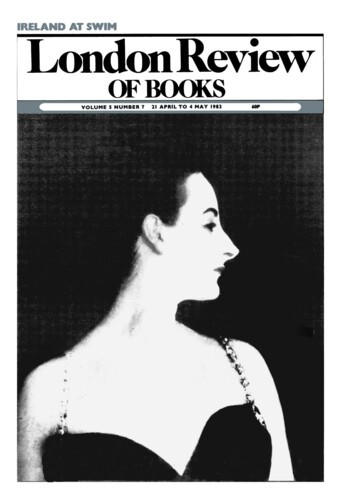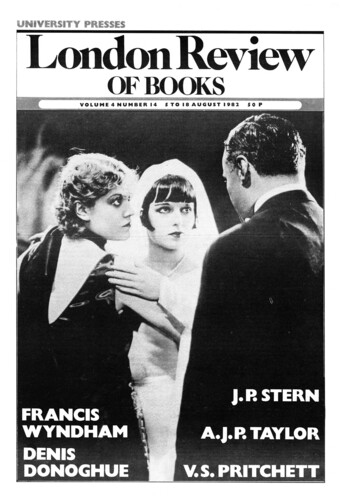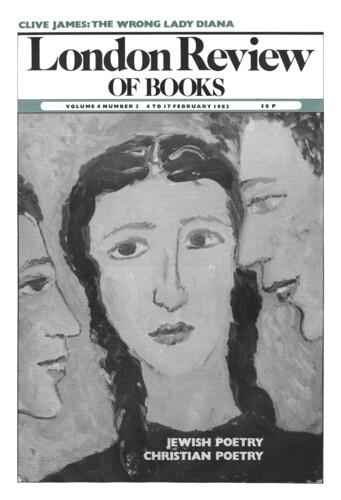Ireland at Swim
Denis Donoghue, 21 April 1983
The Crane Bag is a magazine, published twice a year: each issue deals with one theme. In Irish legend, the crane bag contained the alphabet of knowledge. The bag belonged to Manannan, god of the sea: it was made from the skin of his wife Aoife, whom Manannan had transformed into a crane because she tried to steal his secret knowledge and communicate it to the world. It was believed that cranes formed the letters of the alphabet as they flew. The meaning of the letters was available only to the elect. When the first issue of The Crane Bag appeared in 1977, its editors brooded upon meanings, metaphors, occult notations, and the like. Only irrefutable evidence of editorial seriousness in the magazine as a whole set aside the question of vanity in its manifesto. The present book reprints the first ten issues: the themes are Art and Politics, a Sense of Nation, Mythology – a double issue, this – Tradition, Anglo-Irish Literature, the Irish Woman, the Northern Issue, Minorities in Ireland, and the Irish Language and Culture. I should report that the magazine, after an issue on Joyce and the Arts in Ireland, has now gone international with a Latin American issue and one on Socialism and Culture.



